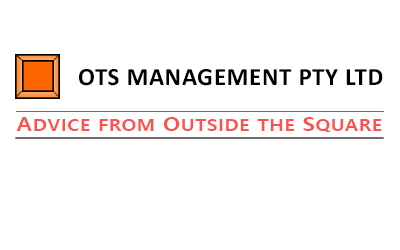This week, I was reminded how stressful owning and operating a business can be.
A friend had a stress attack that seriously stopped him in his tracks. His doctor said that it could have led to a heart attack from the stress it put on his body's systems.
Now, I’m not saying that it was caused by something in his business, but I know he works hard in the business, always looking ahead and thinking about his team, the business key indicators, and on how to improve the business.
What I am saying is that for all of us, business is stressful.
As business owners we owe it, not only to ourselves, but to our families and loved ones, and to those who depend on us, to stay healthy and resilient. At the end of the day, resilience is about mental flexibility and the ability to adapt to change and uncertainty.
How do you do that?
Incorporated into our mental flexibility is the mental capacity to understand what you can control, and what you can’t.
First, understand what you can control, and what you can’t.
Solve issues that you can control. The best way to do this is to act strategically rather than one issue at a time. Prepare or review your strategic or business plans and ensure that you have a co-ordinated approach to identifying, understanding, and resolving issues.
Once you have identified the issues that you can control and you have strategically planned for them so that any action is part of an overall and co-ordinated set of actions, start to work on them. Do what you need to do to work on them: get help from others, learn new skills, make changes in the systems.
As for issues you cannot control – remember it’s not what happens to you but how you let what happens affect you.
Some people see the bad things that happen to them as a reflection of the bad people that they are. Perhaps they think they have not been sufficiently prepared, or that they deserved whatever happened.
Others see these unpredictable events as just events - they learn from them.
Get to understand that a bad thing happening to you, especially if it is outside of your control, is not the immediate pronouncement of death and destruction. Put some perspective into the vision and see it for what it is - something that happened that you could not control, and then see what you can do to mitigate the effects.
Seek the hidden opportunities. At the very least, be grateful for the learned lesson.
Then let it go.
Step 2 is to learn to recognise signs of burnout and invest in self-care.
There is nothing more important for us lonely business owners out there than to be self-aware.
Notice if you are getting short-tempered; understand why you become insistent on "my way or the highway"; if you are withdrawn at home, what’s causing that?
Do something as soon as you notice changes because this is an issue that you can control.
As part of this process, invest in some self-care. Make sure that you take holidays – schedule them, take them, don’t take work with you.
I know for many this next step might be a little too “woo-woo” but look at doing spiritual and physical things that relax you and give you perspective – get a massage, meditate, pray and commune with what beliefs you share with others, join a gym or an exercise group. Feed your soul.
One of the things you can do – funnily enough – is to aim to learn and grow in your business. So, take courses about business skills and learn better ways to operate your business. With knowledge comes strength; with knowledge, any unexpected occurrence becomes a previously learned possibility.
I have always worked with small business owners and entrepreneurs and I love their positivity and determination – they are exciting people who inspire me and have done so throughout my career. However, we all should recognise that being in small business is a high-stress occupation! So, look after yourselves because being in business can also be rewarding for your soul!




